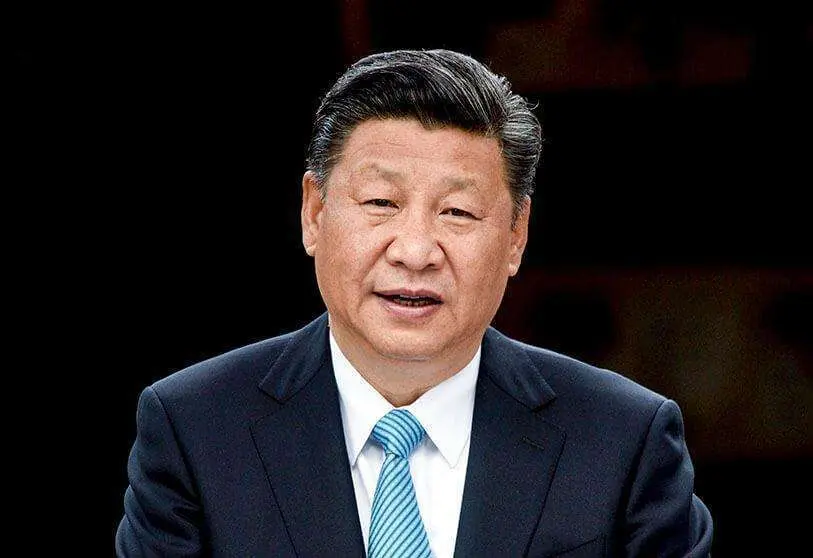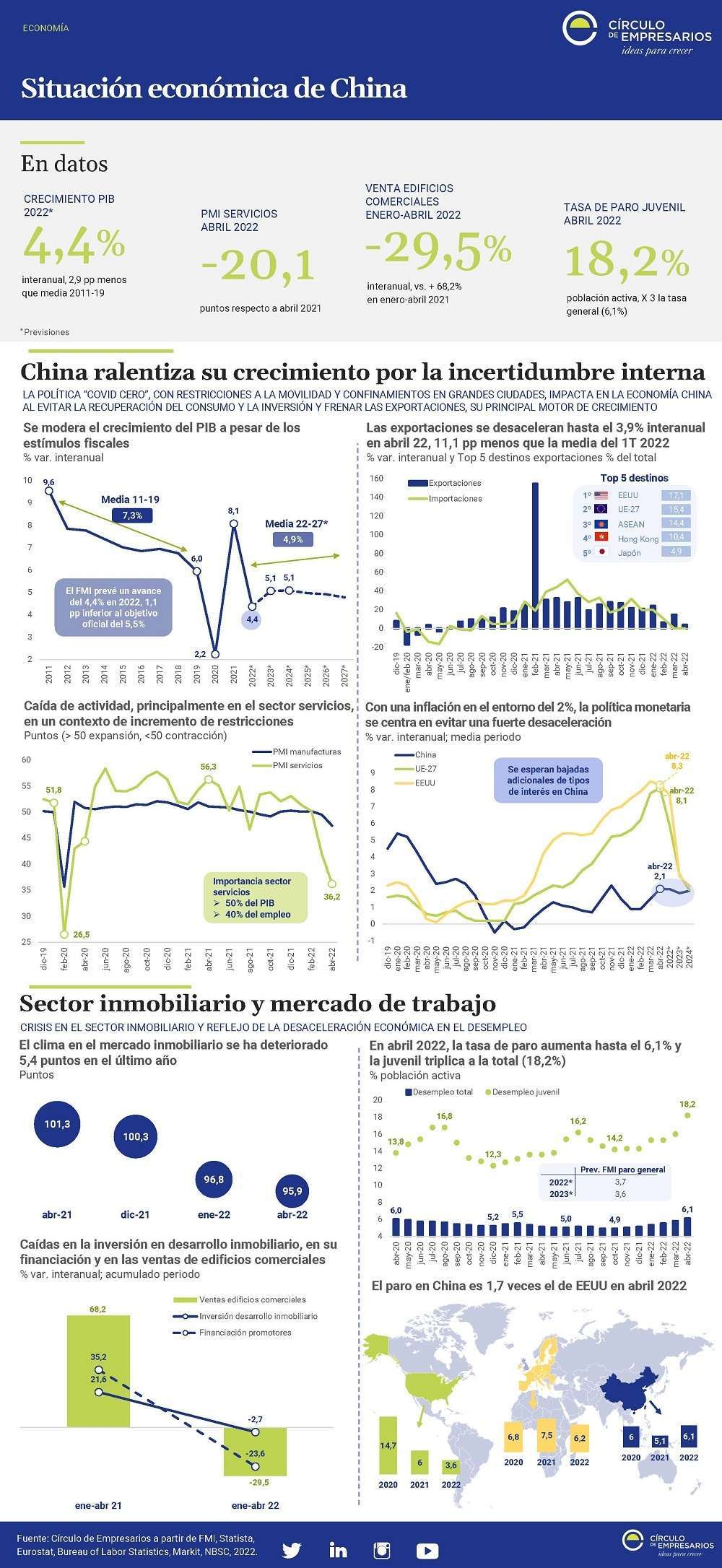China: a tense summer in the face of a hot autumn

The economic slowdown and the fight against COVID-19 fuel rumours of leadership tensions.
Just a decade ago, the world's most populous city, Chongqing, in the centre of populous China, was experiencing the darkest episode of the power struggle that finally enthroned Xi Jinping, who has amassed so much power that he is preparing to hold on to another five at the helm by the end of the year, an unprecedented period. The struggle then was cruel, leaving corpses and detainees along the way. The loser was the party's secretary general in the big inland city, Bo Xilai, who paid with his wife with imprisonment, while his wife's alleged lover or business front man, a British citizen, was found dead.
Are we facing a major new political battle? The current economic slowdown - in trade, employment and productivity - and the dubious effectiveness of the 'zero COVID' policy have increased speculation about leadership tensions. Xi leads an official position of less foreign dependence, even as China was able to sustain its golden decades through international trade. He now encourages his technicians to develop their own technology. In the same way, he is seeking support from the Silk Road countries and even Russia so as not to increase its dependence on capital from the liberal West.
The autarkic airs of the official political discourse undoubtedly contrast with the reality of the benefits achieved by the Asian giant in these decades of globalisation. China has made clear progress in making its economy independent in strategic sectors such as energy - clearly betting on developments in solar energy and electric car batteries. But the truth is that in a key area such as aviation, its dependence on Western-made components is almost absolute.
Nor has China managed to break away from its dependence on the value of the dollar or the euro in the market, with very little penetration of the yuan as a working currency, at least in Asian markets. Combined with falling productivity, lower economic activity due to the restrictions imposed on the population and businesses by zero COVID and rising unemployment, especially among young people, the economic outlook is neither rosy nor does it allow much scope for exploring new avenues.
Asian analysts are watching with interest the doublespeak that is beginning to emerge in Supreme Leader Xi's public comments, as opposed to those of Premier Li Keqiang. The realism displayed by the number two when he speaks of "greater difficulties in some aspects of the economy", his more permissive stance, or his closer stance towards the thesis of collaboration with the West, as well as his lesser willingness to favour the Communist Party's weight in the management of the economy, suggest a divergence of models that could come into confrontation next autumn if the economy continues to show signs of weakness.

The economic tables recently published in Spain on the Chinese economy, drawn up by the Círculo de Economía, are convincing. Growth in 22, 4.4%. Almost three points less than the average for the decade 2011-19. Commercial building sales fall by 29.5% year-on-year, compared to 68% growth in January-April of the previous year. The youth unemployment rate rises to 18.2%, three times higher than the overall average of 6.1% unemployment, well above the average in the United States of America for example.
According to the Circle, "the zero COVID policy, with restrictions on mobility and confinement to big cities, impacts on the Chinese economy by preventing the recovery of consumption and investment and slowing down exports, its main engine of growth. GDP growth moderates despite fiscal stimulus. Exports decelerate to 3.9% y-o-y in April, 11.1 p.p. below the average of the first quarter of 2022. Falling activity, mainly in the services sector, in a context of increasing restrictions. With inflation at around 2%, monetary policy is focused on avoiding a sharp slowdown".
The conclusion is that "China's growth is slowing because of domestic uncertainty". The main and public reason is blamed on the restrictions imposed by the zero COVID policy, but which have started to create unease and disquiet among the population (especially in Shanghai and Hong Kong). There is a growing feeling that purely authoritarian measures will neither solve the situation, nor allow for action that is closer to the interests of the population. It is as if the main interest is to preserve the stability of power at all costs in the face of the forced changeover next autumn.
Premier Li, who was already in the power struggle when the current leadership was established a decade ago, should leave his post in the spring, after Xi's tenure as the all-powerful general secretariat has been consecrated. As in the unpleasant case of Chongqing, which ended the aspirations of Bo Xilai, who was demoted and imprisoned, Xi has imposed a battle against corruption that is said to have already affected nearly four million officials, and in particular some four hundred in high positions.
The policy of absolute control may prove as effective as raising a revanchist storm that will not allow Xi Jinping to remain in power without tension for another five years at the upcoming 20th Congress of the Chinese Communist Party (CCP). In today's volatile world, with the Ukraine war raging and global alliances in question, China's situation is as crucial as it is enigmatic.
Javier Martín-Domínguez is a journalist and former correspondent in the United States and Japan

